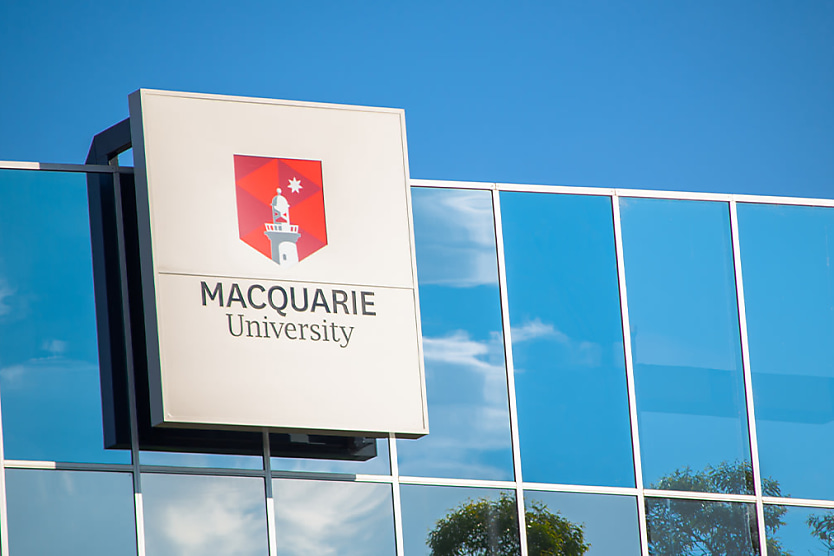Macquarie University hit with SafeWork notice
SHARE THIS ARTICLE

Another NSW-based university has been issued an improvement notice by the state’s workplace regulator.
Editor’s note: This story has been updated to include a statement from SafeWork NSW, which had not been provided at the time of initial publication.
SafeWork notice and Macquarie’s response
In a statement provided to HR Leader, a spokesperson for SafeWork NSW said that the regulator is committed to supporting businesses in meeting their compliance obligations to provide a working environment that supports worker safety and wellbeing during all phases of business operations, including times of change.
“SafeWork NSW received a request for service in September 2025 raising work health and safety issues at Macquarie University,” the spokesperson continued, and “has issued an improvement notice to Macquarie University regarding the issues raised”.
“SafeWork NSW is continuing to engage with the university, along with its health and safety representatives and staff, on this matter.”
A spokesperson for Macquarie University confirmed with HR Leader that an improvement notice had been received from SafeWork NSW.
“Macquarie University takes the safety and wellbeing of its community extremely seriously. We follow best-practice work health and safety and are always open to suggestions where needed,” the spokesperson said.
“We welcome SafeWork NSW’s constructive feedback regarding current change proposals in two of the university’s faculties and are working closely with them, as well as with relevant health and safety representatives across the faculties.”
The notice relates, the spokesperson said, specifically to the process of consulting certain committees.
“The university is confident that safety and wellbeing considerations are being assessed in the change proposals, which set out detailed measures to address potential risks. The university is actively consulting with relevant committee members regarding these issues,” they said.
“All staff have access to comprehensive wellbeing services and support. Staff in the two faculties – including members of safety and wellbeing committees – have been extensively consulted and have had multiple opportunities to provide feedback throughout the process.”
Macquarie remains, the spokesperson concluded, “committed to genuine, constructive and open consultation with all staff potentially impacted by the proposed changes”.
In June, HR Leader reported that Macquarie University was set to scrap several courses, which would lead to dozens of job losses.
‘Unprecedented’ regulatory intervention
The National Tertiary Education Union (NTEU) said the improvement notice had been issued following concerns from union members over an apparent lack of consultation over the university’s “savage” restructure, which the union said will result in the loss of 65 essential staff members and the axing of over 200 units, majors, and degrees.
NTEU NSW division secretary Vince Caughley said: “This is now the second major intervention by the safety regulator into an NSW university change process. That is unprecedented, and should deeply concern anyone who cares about the integrity of our public institutions.”
“In pushing ahead with their damaging change plans, Macquarie University management knew full well what their obligations were under workplace health and safety law, but failed to fulfil them. Even more disturbing, documents we obtained under freedom of information show that Macquarie management had a credible plan that did not involve any job cuts – yet they chose this damaging and reckless path.”
Dr Nicholas Harrigan, NTEU Macquarie branch president, said: “Staff have been at breaking point for months now, and to have our painful circumstances acknowledged by SafeWork brings a small sense of relief.”
“Right now, staff feel powerless. We’re already overworked, we have one of the world’s worst staff-to-student ratios, and now we’re having to explain to students why they won’t be able to study critical things like politics, music, and ancient history.”
UTS’ and ANU’s issues
The news follows a series of governance issues plaguing major Australian universities in recent months.
In early September, the NSW workplace regulator issued a prohibition notice to the University of Technology, Sydney (UTS) over its plans to axe up to hundreds of jobs, as well as several courses. The notice followed reported emails being sent out to up to 800 staff members, advising them they could be in line to lose their roles under proposed restructures to address the university’s financial troubles.
Later that month, UTS released details of its proposed restructure for staff consultation, which includes the amalgamation of its existing law and business faculties, discontinuing 167 courses, and a reduction of approximately 134 full-time equivalent academic positions, and a decrease in its casual workforce.
According to the NTEU, and as reported in April, UTS employees were at the “breaking point”, as a litany of “serious management failures” continues to plague the foundations of the tertiary institution.
More recently, the Australian National University (ANU) was forced to change course on its planned redundancies, following the resignation of vice-chancellor Genevieve Bell, and the issuing of a vote of no confidence in its leadership, which the university dismissed as a “vehicle for disinformation”.
Jerome Doraisamy
Jerome Doraisamy is the managing editor of Momentum Media’s professional services suite, encompassing Lawyers Weekly, HR Leader, Accountants Daily, and Accounting Times. He has worked as a journalist and podcast host at Momentum Media since February 2018. Jerome is also the author of The Wellness Doctrines book series, an admitted solicitor in NSW, and a board director of the Minds Count Foundation.

